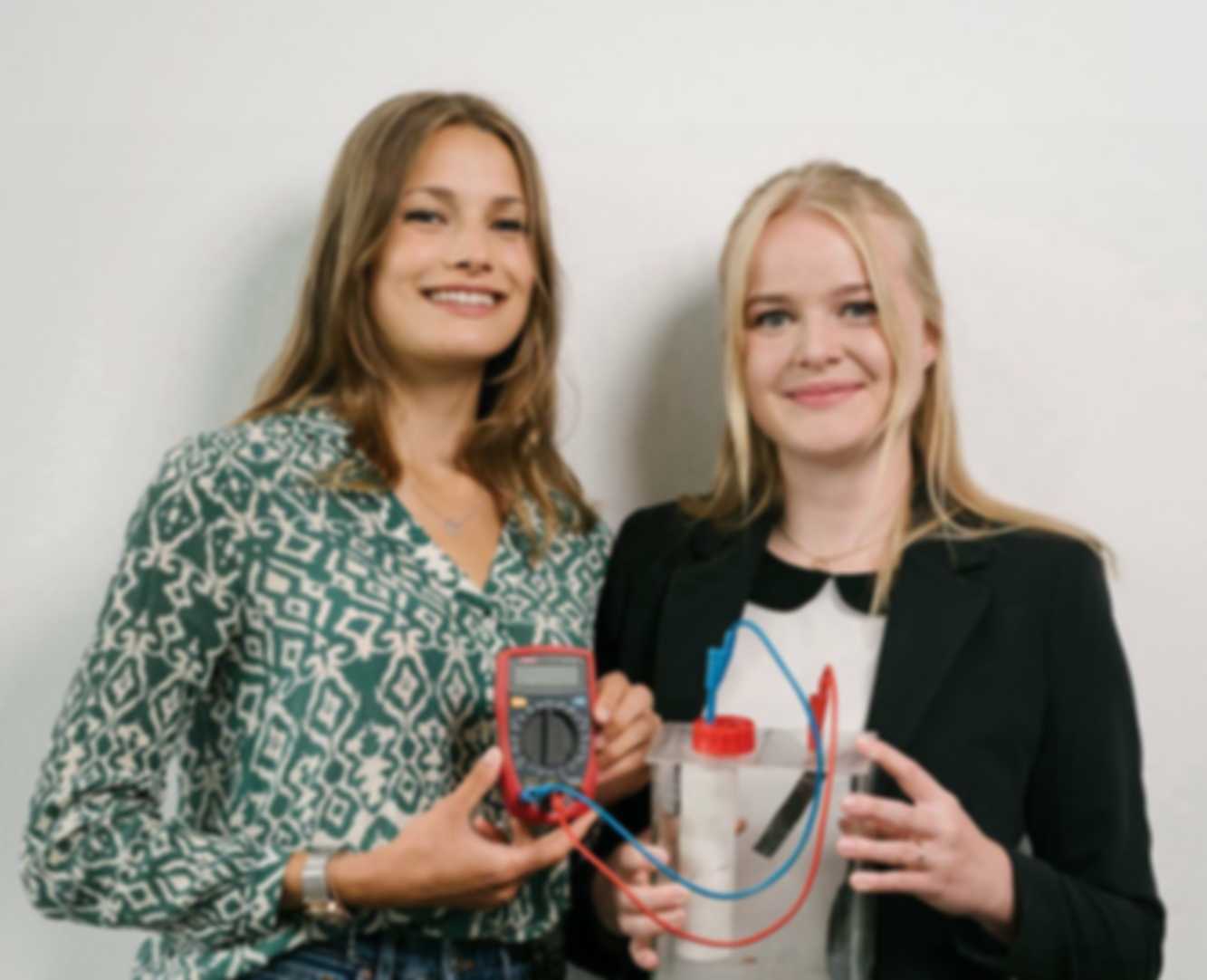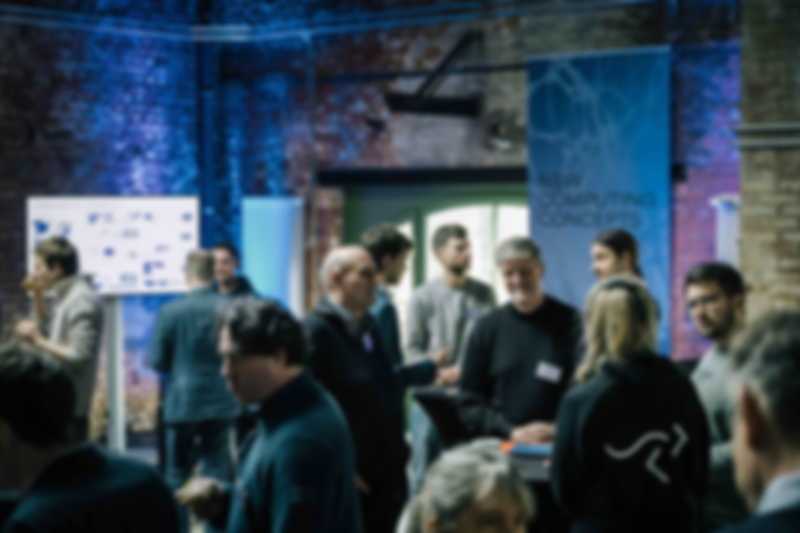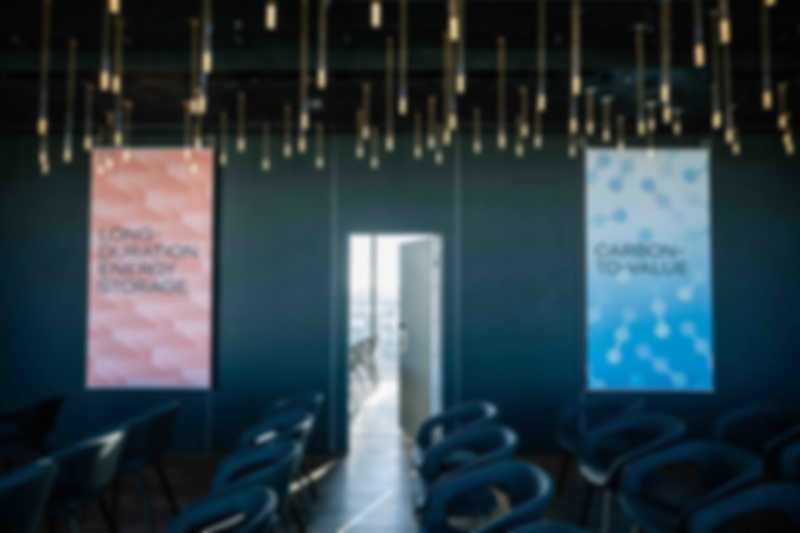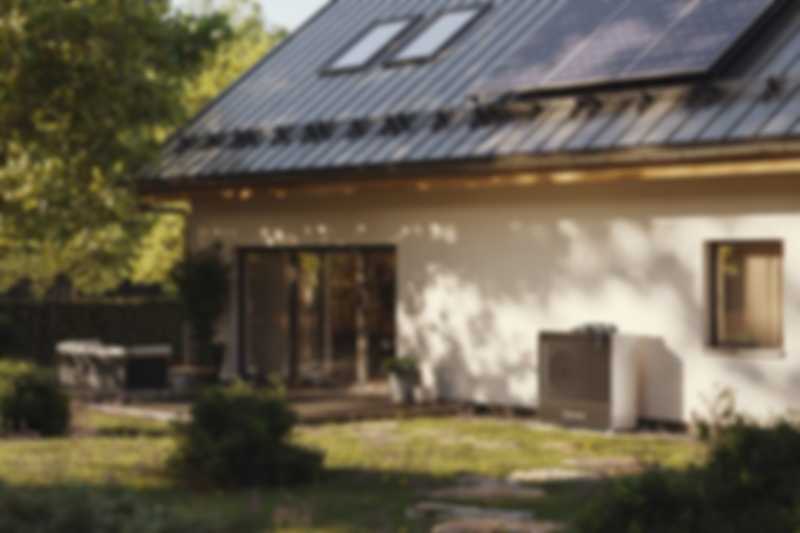SPRIND Funds Validation of Environmentally Friendly Redox Flow Batteries
Young Innovator Team: Direct from high school to SPRIND
One of the long-time, key issues in German politics has centered around the urgent need for an energy transition. In a goal to become the first CO₂-neutral nation, Germany plans to stop using fossil fuels by 2050. Switching to renewable energies is a good alternative, but building more of these kinds of facilities is not enough: Since the electricity they produce fluctuates, the power grid is irregularly supplied. The dark doldrums is one example; these are days without sunshine or enough wind to move turbines. In 2022 alone, there were a total of 42 days when the contribution of renewable energies to total electricity demand was less than 20 percent. This is where modern storage technologies play a highly important role, storing surplus electricity during peak production periods and releasing it back into the grid during peak load periods.
But there has not been storage technology that could sufficiently satisfy the needs of the market – until now. Since the beginning of this year, SPRIND has been supporting a project to develop new mass storage possibilities. The young founders Mariella Benkenstein and Marit Kock base their invention on the redox flow technology, which is known for energy storage.
In a redox flow battery, electrolytes circulate in two circuits separated by a membrane and are each oxidized or reduced. After the reaction, the electrolytes are stored in separate tanks. Since the charged electrolyte is stored separately from the electrode, the accumulator has very low self-discharge and extremely low wear. The spatial separation also allows the performance and capacity scalabilities to be separated. Because of their design, previous redox flow batteries are also ideal for mass, long-term storage.

The game changer is the choice of electrolytes. Instead of environmentally harmful vanadium, the two inventors are using carbon dioxide and water – raw materials that are neither limited nor highly polluting.
Our electrolyte consists of gaseous CO₂ at the positive terminal of the battery and water at the negative terminal. During the charging process, the CO₂ is converted with the electricity into a more energy-rich substance. This is how we convert electrical energy into chemical energy. During the discharge process, the stored energy is released anew and CO₂ is produced again. The process can then be repeated up to 20,000 times,
explains Mariella Benkenstein. Furthermore, the battery is resistant to self-discharge and deep discharge. Unlike lithium-ion accumulators or vanadium redox flow batteries, their battery functions without metal, which means it does not require critical raw materials, making it environmentally friendly. Their specially selected and researched catalysts enable fast reactions and are thus highly sensitive to the power fluctuations in the grid.
Moreover, the redox flow battery supplies 20 to 50 times the energy density of a lithium-ion accumulator, which means the battery is smaller and less dependent on location factors. This makes it handy for home storage, fitting under the domestic photovoltaic system. It can also be constructed as an intermediate storage for wind and solar parks or as a plug-in system on a container that can be easily transported wherever there is a need for storage capacity.
While still in high school, Mariella Benkenstein and Marit Kock began developing the technology in 2019 as part of a youth research project called Jugend forscht. Within three years, in 2021, their extensive research began generating external interest.
Our school was always very supportive. Our principal and, of course, our teachers always encouraged us and believed in us, even when things were not going so well,
says Marit Kock. In 2022, they decided to apply to SPRIND. Since January 2023, their project has been funded by the German Federal Agency under a validation contract. We are very grateful to SPRIND for recognizing the potential of our idea. This is a huge opportunity that has allowed us to focus completely on our technology since graduating from high school last year.
What is a redox flow battery? How can it radically reduce the cost of storing energy? And why could two 19-year-old high school graduates from Schleswig-Holstein make a decisive contribution to the technical breakthrough? Our host Thomas Ramge talks to Mariella Benkenstein and Marit Kock, founders of a battery start-up.
Listen to the episode (in German).



